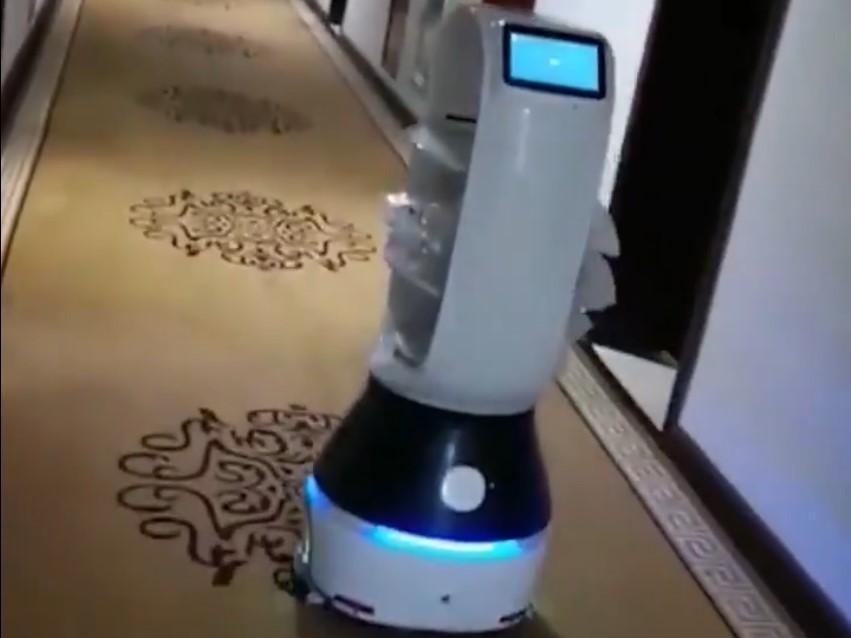Coronavirus pandemic could prove 'tipping point' for robots looking after humans, scientists and experts say
Robotics experts say AI and machines could save lives by performing the 'dull, dirty and dangerous' jobs

Your support helps us to tell the story
From reproductive rights to climate change to Big Tech, The Independent is on the ground when the story is developing. Whether it's investigating the financials of Elon Musk's pro-Trump PAC or producing our latest documentary, 'The A Word', which shines a light on the American women fighting for reproductive rights, we know how important it is to parse out the facts from the messaging.
At such a critical moment in US history, we need reporters on the ground. Your donation allows us to keep sending journalists to speak to both sides of the story.
The Independent is trusted by Americans across the entire political spectrum. And unlike many other quality news outlets, we choose not to lock Americans out of our reporting and analysis with paywalls. We believe quality journalism should be available to everyone, paid for by those who can afford it.
Your support makes all the difference.The development of robots to save lives and reduce human exposure to the Covid-19 coronavirus outbreak could lead to a new era of robotic human helpers, researchers have said.
Robotics professor Henrik Christensen from the University of California San Diego, was among a group of leading experts who outlined how robots could be used to combat the coronavirus pandemic by doing the "dull, dirty and dangerous" jobs.
"Already, we have seen robots being deployed for disinfection, delivering medications and food, measuring vital signs, and assisting border controls," the scientists wrote in an editorial in the journal Science Robotics.
"Opportunities lie in intelligent navigation and detection of high-risk, high-touch areas, combined with other preventative measures. New generations of large, small, micro, and swarm robots that are able to continuously work and clean could be developed."
The researchers suggested Covid-19 could drive sustained research in robots, artificial intelligence (AI) and drones to address the risks of infectious diseases and potentially provide the "tipping point" for how organisations operate in the future.
"Without a sustainable approach to research and evaluation, history will repeat itself, and technology robots will not be ready to assist for the next incident," they wrote.
Countries around the world have already begun enlisting robots in a variety of roles to reduce human exposure to the deadly virus.
A hotel in China, where coronavirus originated, was one of the first to make use of robots, employing a machine called 'Little Peanut' to deliver food to people placed under quarantine.
In Spain, a fleet of robots is being prepared to assist with the country's coronavirus testing, which could boost the country's capacity to 80,000 tests per day.
Delivery drones are also under development by companies like Amazon and UPS, which would reduce the need for human contact.
The researchers said more needs to be done to fund and develop robotic and AI applications that would help in responding to epidemics and pandemics.
"The experience with the 2015 Ebola outbreak identified a broad spectrum of use cases, but funding for multidisciplinary research, in partnership with agencies and industry, to meet these use cases remains expensive, rare and directed to other applications," the researchers wrote.
"Without a sustainable approach to research, history will repeat itself, and robots will not be ready for the next incident."
Join our commenting forum
Join thought-provoking conversations, follow other Independent readers and see their replies
Comments